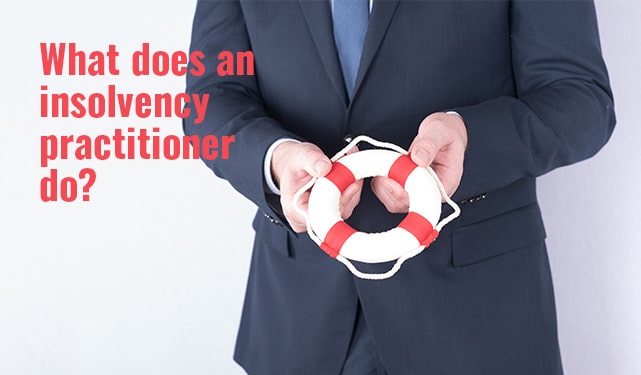Insolvency Practitioner for Dummies
Table of ContentsHow Insolvency Practitioner can Save You Time, Stress, and Money.The Basic Principles Of Insolvency Practitioner Getting My Insolvency Practitioner To WorkGetting The Insolvency Practitioner To WorkSee This Report about Insolvency Practitioner
Whether you require to utilize an insolvency professional (IP) to liquidate your business depends upon various elements. While engaging an insolvency specialist for all types of liquidation is not a legal demand, doing so can often simplify the procedure and make sure compliance with legal requirements. Liquidating a company is a vital decision that comes with considerable consequences.
It is a treatment utilized when a firm does not have any lenders, or all of their creditors can be repaid completely with statutory interest. Comprehending the various kinds of insolvency processes can assist you establish the best strategy for your firm's liquidation or other formal bankruptcy procedures itself.
This is required in order to comply with legal demands - Insolvency Practitioner. This is since IPs have the required certifications and experience to make certain that the liquidation procedure is conducted based on all relevant legislations and policies. By engaging an accredited bankruptcy specialist, you can have comfort understanding that your business's liquidation process will certainly be handled professionally and in conformity with the pertinent legal demands
The 3-Minute Rule for Insolvency Practitioner
The insolvency specialist is appointed as a liquidator and is responsible for handling the firm and liquidator's debts superior liabilities and possessions. This process involves selling the company's properties and dispersing the profits to creditors. Upon conclusion of the procedure, the firm is removed from the register at Companies Home.
Failing to do so can cause personal responsibility for the firm or supervisor for the lender's financial obligations. Volunteer liquidation, that includes Creditors' Volunteer Liquidation (CVL) and Participants' Voluntary Liquidation (MVL), is started by the company's directors and investors when they can no more pay their financial obligations. In a CVL, the insolvency specialist is marked as the liquidator, in charge of taking care of company financial debts and all firm assets.

Little Known Questions About Insolvency Practitioner.
By assessing the competence and experience of possible insolvency specialists, you can guarantee that you pick a practitioner that possesses the necessary qualifications to manage your firm's liquidation procedure successfully. While insolvency practitioner-led liquidation is typically the most ideal strategy for companies dealing with insolvency, there are alternative approaches to take into consideration, such as striking off and partial liquidation.
It's necessary to review all available options before determining on the following best option or strategy for your business. Striking off firms' registers is a much more uncomplicated and cost-efficient means to close inactive or little companies without financial obligations or properties. To strike off a business, its name is removed from the Companies Residence register by sending form DS01.
Prior to opting for striking off, it's crucial to evaluate the benefits and downsides of this strategy and take into consideration whether it's the right choice for your service. Partial liquidation is an additional choice to insolvency practitioner-led liquidation, in which a business sells off particular possessions and liabilities while remaining to run with the remaining properties and obligations.
An Insolvency Expert will have the ability to encourage you of the ideal strategy to take and ensure that whatever runs smoothly. Unfortunately, it is not feasible to liquidate a company without a liquidator. Selecting an authorized bankruptcy practitioner is essential for the procedure of voluntary liquidation to begin.
The Greatest Guide To Insolvency Practitioner
It is feasible to close and liquidate your firm without using a liquidator, provided your firm is solvent and you meet the eligibility needs to liquify or liquidate it. However, if your firm is financially troubled, pop over to this web-site you might be required to make use of a liquidator and begin official bankruptcy treatments. Right here are some various other insightful articles regarding company liquidation in the UK:.
Being in a position where you're unable to pay your company's financial institutions is extremely difficult. In an effort to stay clear of boosting the level of financial obligation, lots of companies try to bargain straight with their lenders and agree to a casual arrangement. If the financial obligation is fairly little and owed to one creditor, and the creditor is being cooperative, entering into an informal debt arrangement is possibly the ideal service, instead of looking the web for 'a bankruptcy expert near me'.
On the various other hand, if there are numerous lenders and the level of financial debt is big, lenders may not be so eager or cooperative. In order to avoid liquidation or personal bankruptcy, it is much better to hire an insolvency expert to create official proposals and work out with lenders in your place.
Insolvency Practitioner - An Overview
Whilst it is a means to take care of financial debt, there are substantial threats included with this kind of financial debt plan - Insolvency Practitioner. If a financial institution is eager to participate in an informal plan (IA) where the debtor check my source has actually concurred to make regular, if reduced, payments to pay back the financial obligation, it is necessary to stick to the contract

Therefore, the lender is within their rights to back out of the contract and application the courts for your company to be liquidated at any moment. An official setup that has been suggested by an insolvency specialist in your place, and agreed by a financial institution, supplies a much more secure choice.